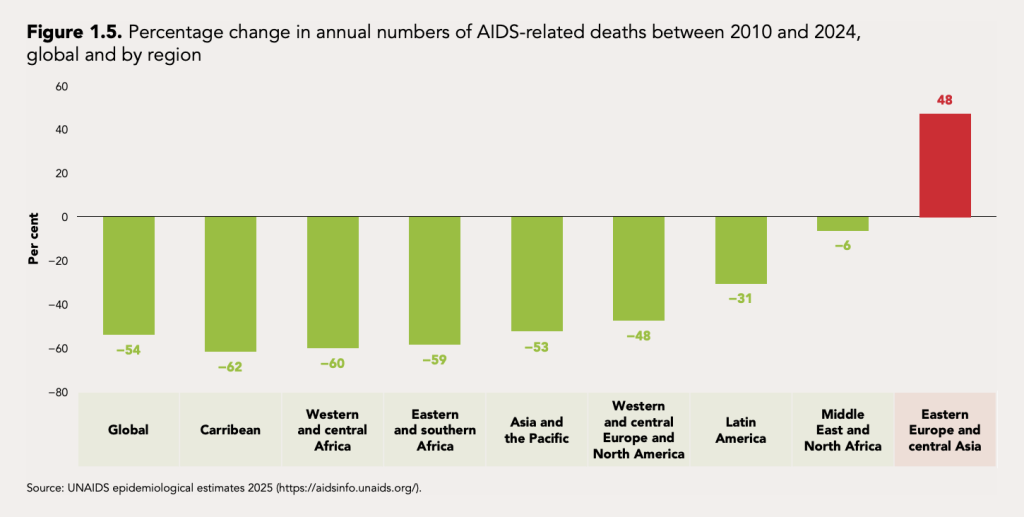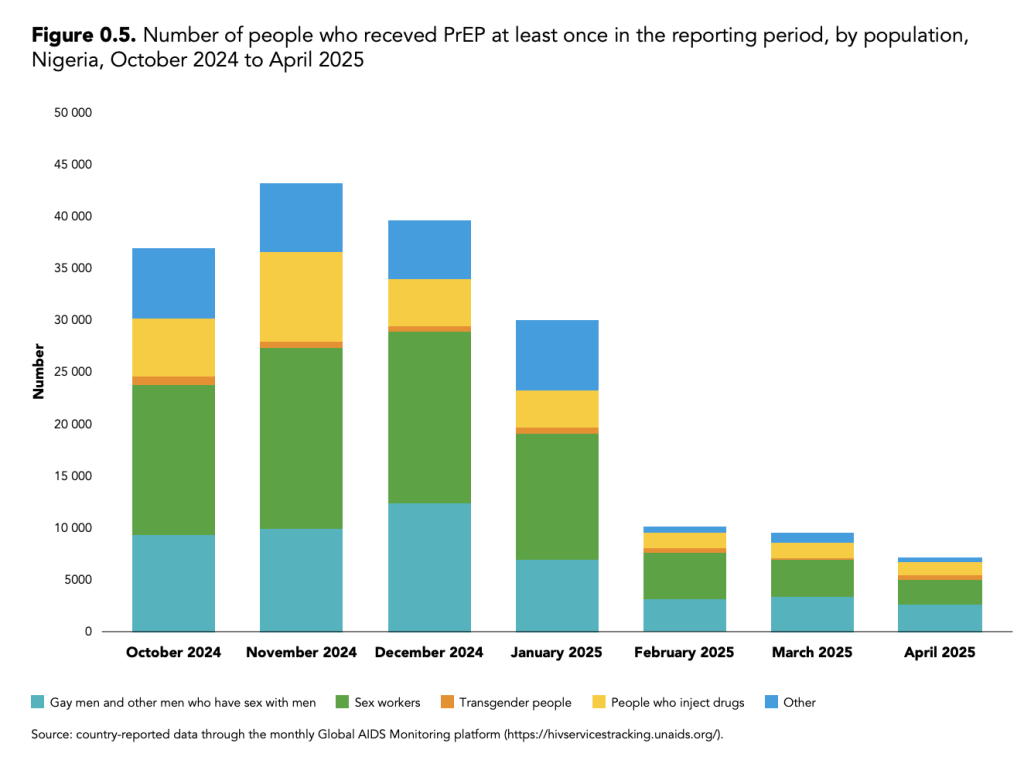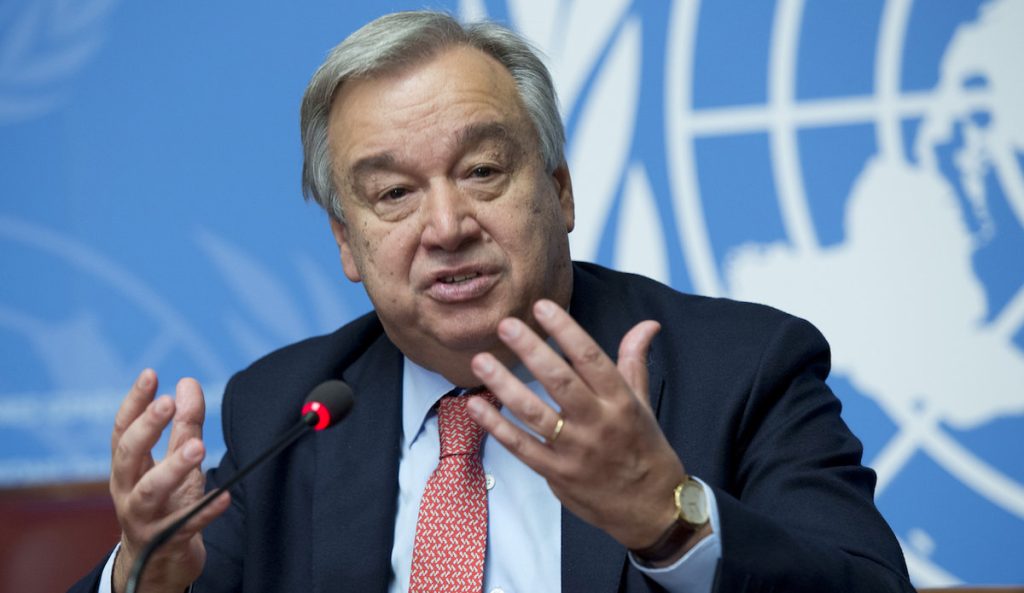The world cannot afford to lose UNAIDS
Commentary: UNAIDS is the glue that holds together the global fight against AIDS.

Over the past two decades, UNAIDS, the United Nations agency that coordinates the fight against AIDS, has seen dramatic reductions in fatalities related to AIDS. Much remains to be done — especially since the Trump administration has slashed U.S. support for health programs abroad. But there’s talk at the United Nations that UNAIDS should be eliminated.
That would be a mistake, says Richard Lusimbo, a leader of the advocacy group representing Ugandans most at risk of HIV. His commentary is republished below.
The world cannot afford to lose UNAIDS
By Richard Lusimbo
Director General at Uganda Key Populations Consortium
As the United Nations turns 80 this year, the world should celebrate a legacy of progress, not dismantling one of its greatest innovations. Yet the UN80 Initiative progress report proposes to “sunset UNAIDS by the end of 2026.” Far from reform, this would be regression. Tearing down a community-centred model that has saved millions of lives, reduced inequalities, and anchored human rights at the heart of the HIV response.

UNAIDS’ unique value
For nearly three decades, UNAIDS has been the glue that holds together the global HIV response. More than a UN agency, it is a joint programme coordinating across 11 co-sponsors while anchoring its human rights, equity, and community leadership mandate. This model has allowed countries to:
- Coordinate action without duplication, reducing costs and increasing impact.
- Embed community voices, including LGBTIQ+, sex workers, people who use drugs, transgender people, and people living with HIV, into global and national policy.
- Accelerate treatment, prevention, and financing innovation, saving millions of lives.
Dismantling UNAIDS now, with unfinished business in the HIV response, would unravel decades of progress.
Communities and realities from the Global South
Nowhere would the loss of UNAIDS be felt more deeply than in the Global South. In countries like Uganda, Democratic Republic of Congo, Kenya, and beyond, UNAIDS has been a critical partner in building national responses that balance science, rights, and community leadership. It has helped governments strengthen treatment access, expand prevention, and protect communities facing stigma and criminalisation.

Uganda Key Populations Consortium (UKPC) has documented in our 2025 report No Time to Wait, that global funding shifts are already devastating our communities. Ninety-seven per cent of KP organisations in Uganda reported service disruptions after donor freezes, with lifesaving supply chains for ARVs, PrEP, and PEP at risk. Drop-in centres survived only through volunteers and reallocated resources. Similar stories are echoed across the DRC, where fragile health systems depend on UNAIDS’ coordination to prevent collapse. Without UNAIDS, countries across Africa, Latin America, and Asia risk sliding backwards in the fight against HIV.
As civil society leaders across the Global South have said, dismantling UNAIDS risks dismantling the principle that pandemics are not beaten by biomedical tools alone but by equity, rights, and community-led responses.

Why the UN must hold the line
Secretary-General António Guterres has argued that reforms must be measured by improvements in people’s lives. UNAIDS passes that test. It is cost-effective, rights-based, and accountable to those it serves. At this fragile moment:
- HIV infections are rising in some regions.
- Funding is shrinking while inequalities grow.
- Communities face intensifying stigma, criminalisation, and shrinking civic space.
Closing UNAIDS now would signal retreat when the world most needs resolve.
A Call to Action
This is a moment of choice. Will the UN protect one of its most innovative and impactful creations, or dismantle it in the name of bureaucratic streamlining?
We call on the Secretary-General, Member States, the African Union, and the global community to protect and strengthen UNAIDS, not sunset it. UNAIDS is not only about HIV; it is about how we prepare for and respond to pandemics with justice, dignity, and community at the centre.
The message is clear: without UNAIDS, the Global South will be left behind, and the world will be less safe, less equal, and less prepared for the pandemics of tomorrow.




